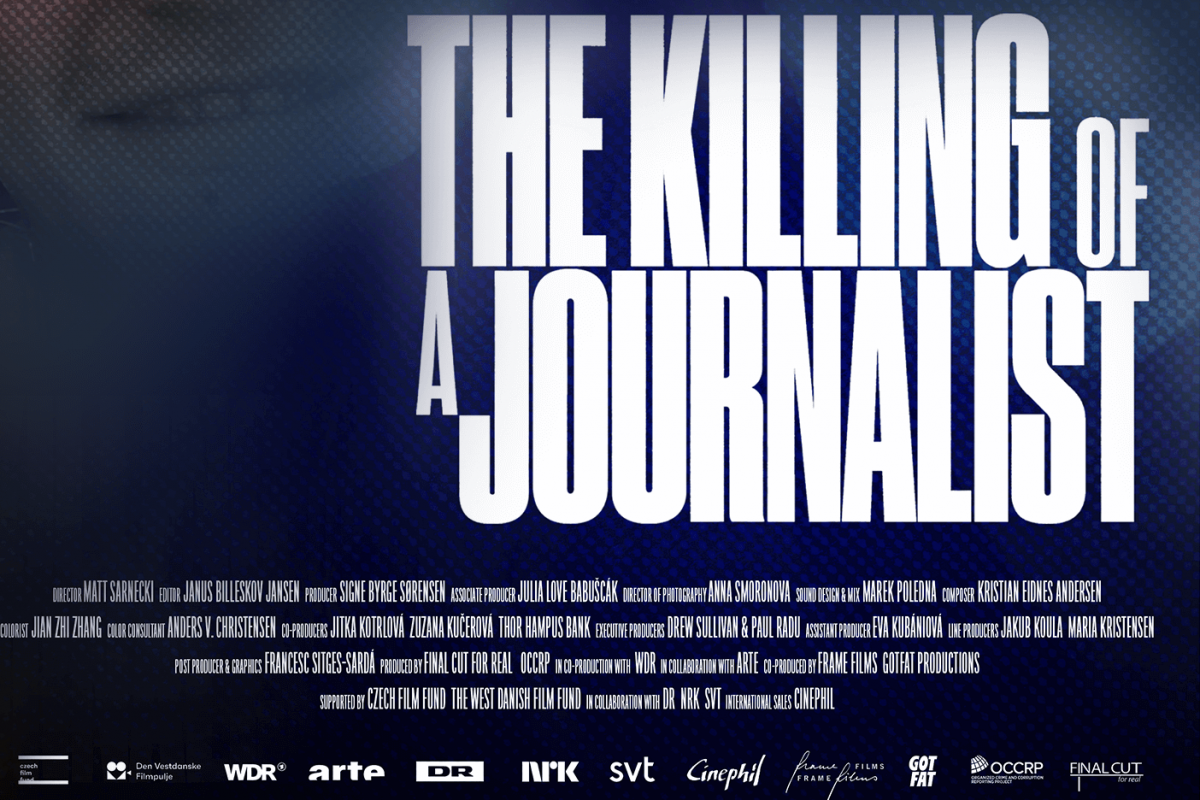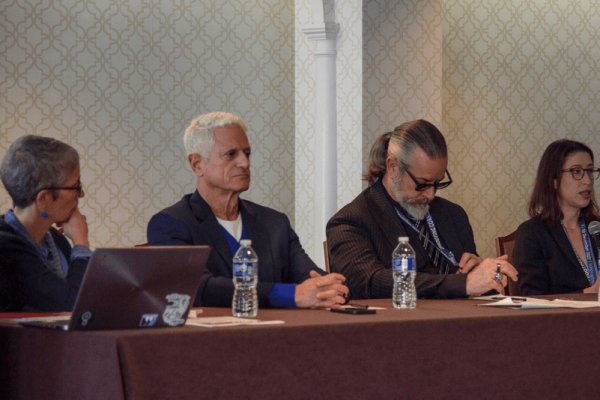Five years ago the Slovak investigative reporter Ján Kuciak and his fiancee Martina Kušnírová were shot dead in their home near Bratislava.
In the wake of the killing, and amid widespread street protests, the prime minister, the interior minister, and the head of the police were forced to resign. The killing of Kuciak changed Slovakian society forever, led to numerous arrests, and ultimately forced a change of government.
“I wish Ján could see the change his work made,” said the investigative journalist Pavla Holcová after the documentary “The Killing of a Journalist” was screened at Films4Transparency, an anti-corruption film festival taking place as part of the International Anti-Corruption Conference (IACC) in Washington, DC, last December.
Before his death, Kuciak had been investigating the influence of the mafia in Slovakia, with his outlet Aktuality.sk, and the Organized Crime and Corruption Reporting Project (OCCRP), which made the film in collaboration with Final Cut for Real.
Holcová – who had been working on a story with Kuciak at the time of his murder – was also one of his close colleagues. The documentary follows her investigation into the attack on her co-collaborator – a sprawling project that led to an enormous trove of leaked documents and exposed, as Holcová explains it, the “blueprint of corruption in Slovakia.”
Holcová’s reporting suggested that corruption had permeated through various branches of the Slovakian state, and dug into the secrets of Marián Kočner, a controversial businessman that Kuciak had been reporting on extensively before he was killed.
Among the material leaked to the reporter while she was investigating the attack was a digital library of blackmail material Kočner held on high ranking politicians, including suggestive and compromising material collected through online chats with high ranking officials by a loyal female friend, Alena Zsuzsova.
Kočner was later accused of ordering the murder of Kuciak and his fiancee, Zsuzsova of being his accomplice. They were found not guilty in 2020. In a retrial, which returned a verdict in 2023, Zsuzova was found guilty of being involved in the killing, while Kočner was cleared. Both of them had denied involvement in the murders.
Kočner was jailed in a separate case – sentenced to 19 years for financial fraud in a case that the OCCRP says was “launched by Ján’s reporting.”
Although Kuciak’s murder was extensively reported on at the time of his death, the documentary gives an insider perspective to what happened and brings the world of in-depth investigative reporting to a broader audience.
By creating a film, says Julia Farrington, a curator of the Films4Transparency Festival, the filmmakers brought the power of this story to a new format, and potentially, a new audience.
“You can selectively read a part of the text, but you can’t skip the parts of the film,” she said. “Often a good film brings up the question ‘What do we do about this?’”
But what can the journalistic community do in the face of attacks like this?
“Report more,” said Drew Sullivan, a co-founder of OCCRP, explaining that journalists need to keep investigating and bringing into the light the reasons and motives of people involved with the killing. The message, he added, needs to be clear: “If you attack us, we are going to go after you even harder.”


